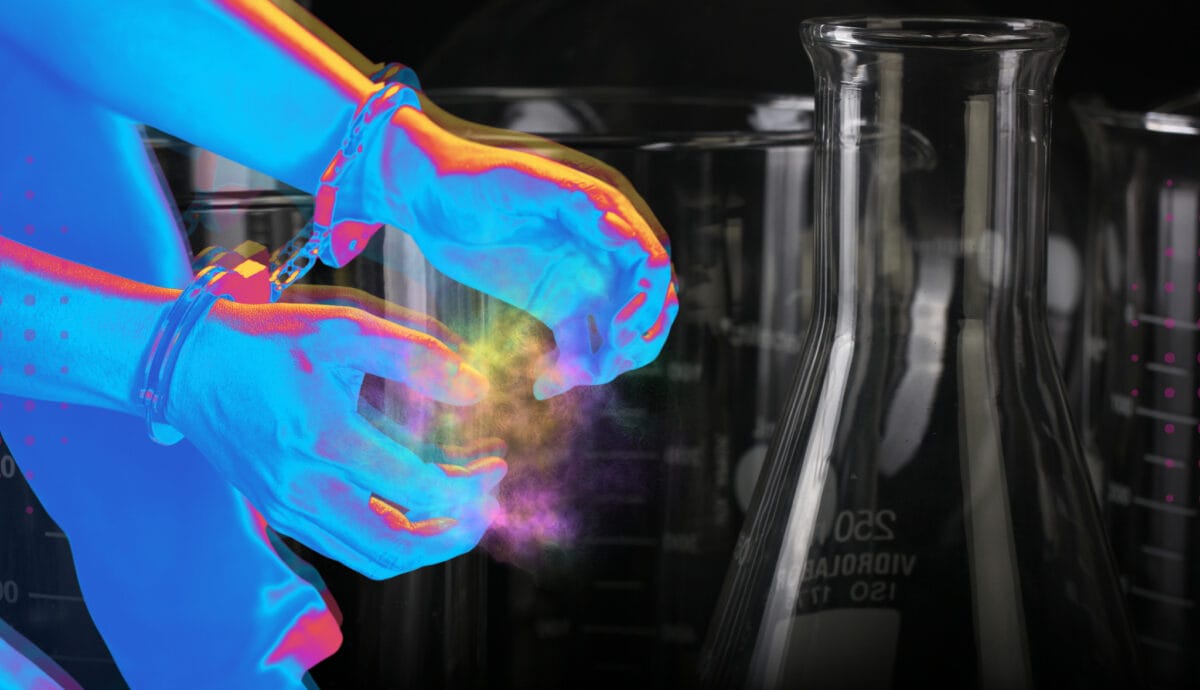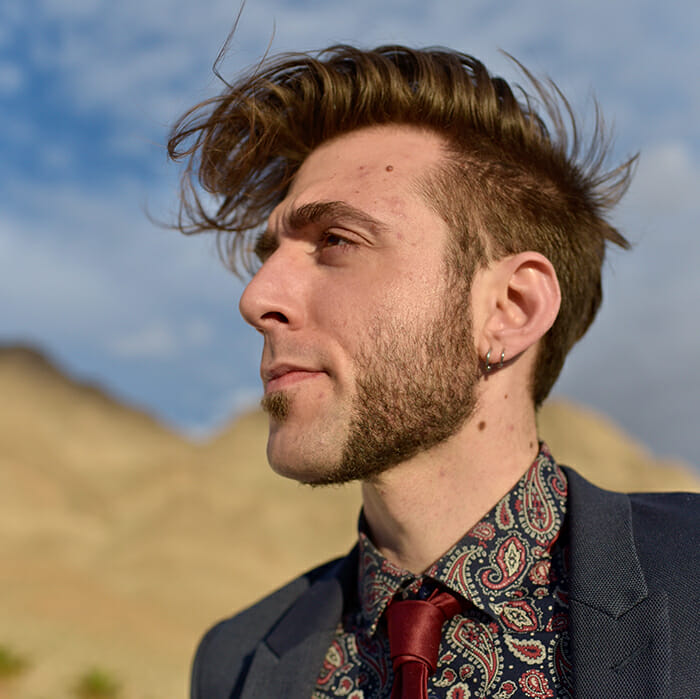It was a cold, late afternoon in early January of 2022. I left my apartment as I had done countless times before. My destination was a church’s analytical lab, where I was involved in an ongoing psilocybin experiment.
Upon arriving at the warehouse, I parked my car in the familiar spot and headed into the lab. However, on this particular day, a strange feeling of impending doom crept up my spine as I approached the large roll-up door. Dismissing my intuition as an inconvenient interruption, I continued into the lab to work alone.
Inside, the deafening roar of the chemical-resistant fan that powered the fume hoods made it difficult to hear anything. But amid the noise, a destructive crash from somewhere in the building caught my attention. The sight of charred and mangled cars outside the warehouse did little to ease my growing concerns.
As darkness descended on the warehouse, I ventured toward the commotion. Frantic flashlight beams pierced through gaps in the large wooden roll-up doors leading to the loading bay. Through a small hole in the paneling, I witnessed a scene that sent shivers down my spine: heavily armed officers in bulletproof vests, armored helmets, and automatic weapons.
Disbelief washed over me as the officers repeatedly commanded me to open the doors. Still in shock and peering through the small hole in the paneling, I asked to see a search warrant. The response was swift and brutal, with the barrage of a battering ram shaking me from my stupor. As I was knocked to the floor along with shards of the door, the reality of the situation began to sink in.
I allowed the police inside, and the warehouse doors gradually rose to reveal a team of heavily armed officers in the loading bay. I was searched, cuffed, and placed face down on the hood of a police cruiser, surrounded by a fleet of police vehicles in the cold winter night.
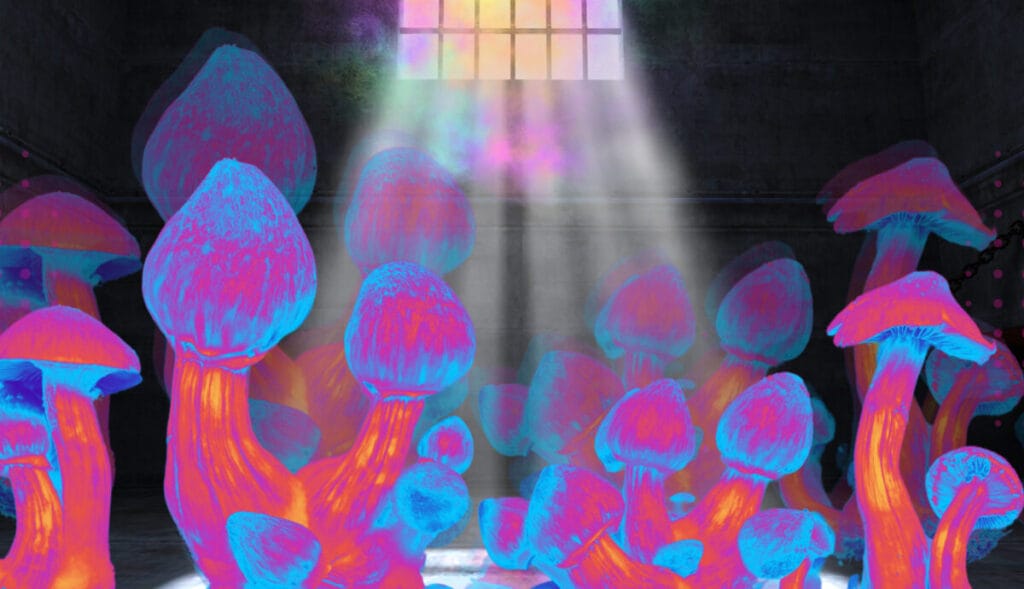
Down the Rabbit Hole: How it All Began
As the cold settled into my chest, I reflected on everything that had led to this moment.
From an early age, I witnessed the tragic effects of addiction, compulsion, and mental affliction in my loved ones. This led me down a path of fascination with medicinal chemistry, introspective psychonautics, and the healing journey. I spent years immersed in laboratories, pushing the boundaries of my own limitations. But beneath my ambitions lay unprocessed trauma, and I was ultimately neglecting my own needs.
Amid the COVID-19 pandemic, I found connection with a community rooted in Kabbalistic Judaism. This diverse group (editor’s note: name withheld) embraced holistic practices, including holotropic breathwork, yoga, artistic expression, nature retreats, and guided ceremonies with psychedelic mushrooms as its sacrament. This religious nonprofit prioritized safety, with a doctor available at all times and thorough participant screening.
Recognizing the inherent variability in mushroom potency, the group sought to standardize their psilocybin sacrament. They launched an extensive cultivation and breeding project, and in the spring of 2021, I moved to Denver to support their efforts.
Over months, we transformed an empty warehouse into a 2,000-square-foot laboratory equipped with advanced analytical instruments. With chest freezers filled with freshly frozen, vacuum-packed psychedelic mushrooms, our goal was to extract, purify, and analyze the sacrament to determine its potency and enable consistent dosages.
Contributing to the safety of the congregation while delving into a subject close to my heart felt like a dream come true. My journey, marked by my biological father’s overdose, the study of Alexander Shulgin’s work, 18 months of immunosuppressive chemotherapy, and my near-participation in a MAPS clinical trial, had brought me full circle. I was now actively involved in a movement of compassion, community, and cooperation—a movement that offered solace and respite from the cruelties of modern life.
The Legal Conundrum
Despite my willingness to support the church’s mission, I hadn’t blindly walked into it. My legal counsel and the synagogue’s had cited multiple case precedents and interpretations of the law supporting the church’s actions as a legal and legitimate form of religious expression.
These legal arguments hinged on various factors, including the 2019 city-wide decriminalization of psychedelic mushrooms, the Denver Police Department’s pledge to deprioritize psychedelic mushroom-related offenses, and the federal Religious Freedom Restoration Act, which guaranteed free religious expression for all faiths on American soil.
However, this thin veil of safety was torn apart as officers tore through the church’s facility, uncovering chest freezers filled with large frozen mushrooms. I couldn’t believe what I was witnessing: my arrest for sacramental mushrooms that didn’t belong to me, at a publicly registered and openly advertised religious nonprofit, in an era where psilocybin mushrooms were gaining recognition for their potential medical benefits and safety compared to alcohol or cannabis.
Despite my disbelief, the fact remained: I was bent over the hood of a police cruiser in a lab coat, surrounded by bags of mushrooms in the dead of night.
In an act of desperation, I chose to cooperate with the police, explaining the mission of the church, the foundational practices of Kabbalistic Judaism, and the purpose of the church facility they had raided.
It took two hours to fully explain my circumstances on record, and I could sense that the investigating officers were shocked by my story. Even for seasoned narcotics detectives, arresting a professional chemist with kilograms of wet psychedelic mushrooms at an advanced laboratory operated by a nonprofit Jewish synagogue was far from ordinary.
After the interview, I was told that the officers would investigate my claims by verifying the existence of the church and its community of over 300 congregants. For now, I was placed on investigative hold and sent to the city jail. As I was transported, the officer driving the cruiser expressed interest in my religious beliefs and confessed a desire to try psychedelics. I couldn’t resist informing the officer that the synagogue welcomed all without prejudice, should they ever choose to attend a ceremony.
The Reality of Incarceration
Upon arrival at Denver City Jail, I was processed, screened for COVID-19, and kept in a temporary holding room until a prison cell was ready. My court hearing was scheduled for the following morning, with release expected later that day. I changed into the orange scrubs of an inmate under the watchful gaze of a corrections officer who snickered at my visible discomfort.
Not long after I climbed into the top bunk above a fellow inmate, a nurse arrived to administer Suboxone to the man below me. Unfortunately, the inmate hit his head on the metal bed frame, opening a bloody gash, which went unnoticed by the medical staff. After administering the dose, the nurse advised the inmate to stay in jail until the effects of the Suboxone had dissipated, and then promptly left him in a sleepy stupor. He was released from prison hours later, without his glasses or cellphone, potentially unaware of the overdose risk he faced if he decided to use opiates again.
Moments after the nurse’s departure, a small wad of discarded paper appeared from underneath the cell door. It was a note from an inmate in the adjacent cell who had overheard the nurse administering Suboxone. The inmate offered coffee, sugar, and other commissary treats in exchange for more Suboxone. Although I was given a mangled pen shaft to respond, I had to disappoint the inmate by explaining that the drugs weren’t mine to give in the first place, and they were already gone.
Despite what I’d been told, I was not released the following morning. Uncertain hours dragged into days as I languished in jail, unable to speak to anyone outside.
Despite the challenges of incarceration, I found an anchor in the flimsy pen shaft I’d been given my first night behind bars. Throughout sleepless nights, I covertly journaled my experiences in the margins of my intake paperwork, holding the makeshift pen and papers out of sight from the guards. I began to notice the details of my surroundings—the layers of stained paint on the cinder block walls, the rank, humid smell of suffering and shame in the air. Desperate for news, I asked for an update from a corrections officer delivering the evening meals, but received only laughter in response.
My dreams were haunted by vivid visions of a court trial, conviction, and sentencing. Yet, amid the nightmares, I experienced a spontaneous endogenous psychedelic dream state that offered a glimmer of hope and resilience.
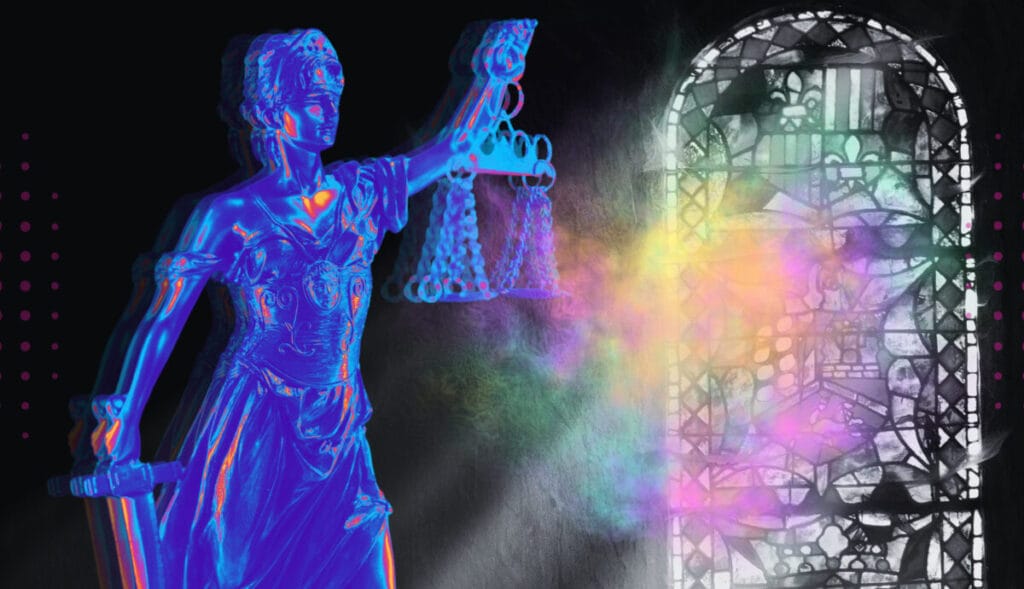
Pretrial Observation
Finally, I was released. Over the days that followed, the fleeting relief I felt upon leaving prison quickly decayed into anxiety and agoraphobia. Loud noises, emergency vehicle sirens, and media depictions of police officers triggered episodes of post-traumatic stress. Despite years of applying various psychotherapeutic methods for my own healing, and weekly support from a therapist, I struggled to remain emotionally present and descended into a deeply dissociative depression.
As an accused felon under mandatory pretrial observation, I was unable to leave the state of Colorado without court approval and had to check in with the assigned pretrial officer after every court hearing. Any attempts to secure employment were thwarted by the glaring red flag of a level one drug felony on my background check. Career opportunities that had been secured months prior were abandoned in light of the investigation. Even driving for Lyft was no longer an option.
In this haze of rejection and persecution, I received the support of family and friends, notably my civil attorney, Robert Rush, who connected me with Sean McAllister, a well-known champion of psychedelic and social justice local to Denver. His confidence and thorough understanding of the law were critical to the ongoing court proceedings and gave solace to my shattered sense of security in the future.
Sean and I reviewed hundreds of pages of documents and photos from discovery over the next few months. Just weeks after the arrest, I was reading various reports from officers describing their firsthand experiences arresting, detaining, and interviewing me, along with my mugshot, fingerprints, and a full transcript of the phone calls I made from prison. Working through the crippling weight of anxiety and deeply triggering nature of reviewing evidence, I attempted to offer insights and interpretations that eventually became integral to our initial argument for full dismissal of the criminal charges.
Despite seemingly insurmountable support for a guilty verdict and the shame I had internalized through the trauma of these experiences, I held onto the conviction that this criminal accusation was merely a relic of vestigial legislation. The misinformation and outright lies seeded by prohibitionist narratives since the advent of the War on Drugs had blossomed into burgeoning tendrils of prejudice and ignorance that stemmed throughout the criminal justice system and ensnared countless victims in its thorny grip.
Thankfully, I was hardly alone in this opinion. Mounting support for sweeping changes to psychedelic law had catalyzed the decriminalization of psilocybin in Denver just a few short years before, and a recent report from an impartial review board discovered that the past two years of decriminalization had not led to any significant public safety concerns.
Following his involvement in the initial campaign for decriminalization, my attorney continued to fight for psychedelic access through his work with the Natural Medicine Health Act (NMHA). This new law sought to retroactively decriminalize personal possession, storage, use, processing, transport, obtainment, ingestion, cultivation, gifting, and ancillary support services for psilocybin mushrooms and other natural psychedelic medicines, and create a legal clinical system for patients to access therapies at licensed facilities, staffed by specialists trained to state specified standards.
In comparison to my legal conundrum, this new paradigm seemed like salvation. Despite my social anxiety and traumatic episodes of police-related paranoia, I attended several events in support of the NMHA and immersed myself in the local ecosystem of fellow psychedelic enthusiasts and professionals. Stark differences in opinion over decriminalization versus legalization and regulation divided the group into clear sides: those in support of the NMHA and those opposed.
With the prospect of my freedom hanging in the balance, I was deeply confused and saddened by this conflict. Completely unable to discuss the details of the ongoing investigation, I repressed impulses to share my struggle, instead opted to thoroughly review the language of the NMHA itself and network with the incredible individuals responsible for drafting and supporting it. The guidance and expertise offered by this group was invaluable during this vulnerable time. I was humbled to receive their presence in my life and gladly accepted an invitation to host an educational psychedelic mini-conference at my home. The event included numerous presentations, talks, demonstrations, and group exercises from expert members of the local community and conjured a feeling of much-needed camaraderie in light of the glaring uncertainty surrounding the approaching election.
Despite all my efforts and attempts to support the campaign, review case evidence, and secure a path through this upheaval, I ultimately had to surrender to a lack of control. I slowly allowed a fickle feeling of freedom within myself and began to engage in my own life with renewed interest.
On a serendipitous skate down the Cherry Creek Trail into Confluence Park, I ran into a representative of the NMHA collecting signatures for the law’s inclusion on the upcoming November ballot. As I happily offered my support, I reflected upon the potency of surrender and its demonstrated ability to align me with an opportunity to support progress for the future of psychedelics and my freedom.
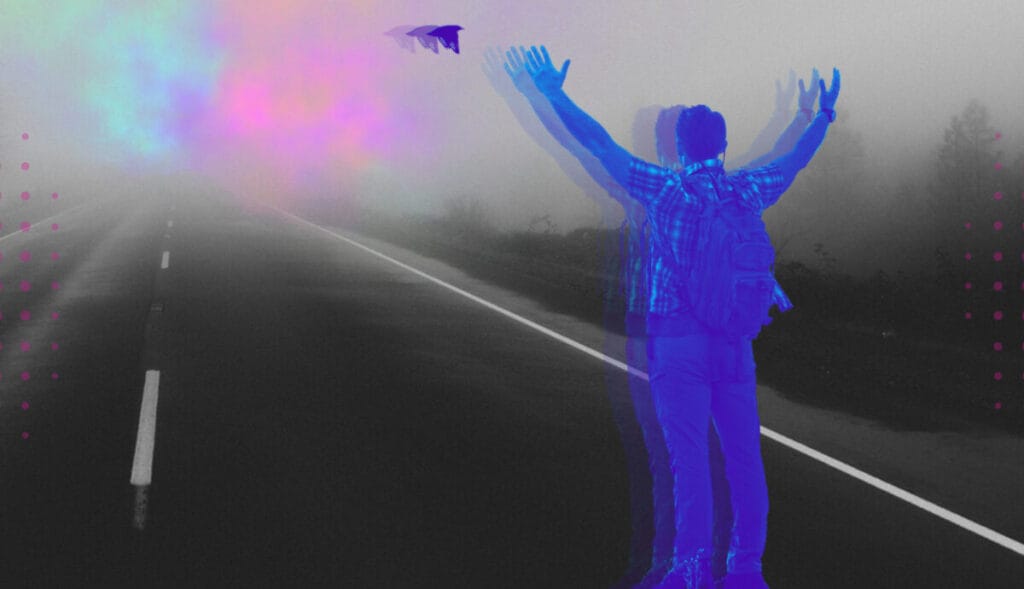
The Road to Redemption
Notwithstanding the inspiring support offered by compassionate communities, gaining ground with the prosecution moved at a snail’s pace. Resistance to dismiss the case outright was inherent to their initial plea offer of a level three drug felony (DF3), requiring up to four years of imprisonment and fines up to $500,000. Besides litigating the case in court, the upcoming vote for the Natural Medicine Health Act appeared to be the only way towards resolution.
After submitting my ballot in support of the NMHA as early as possible, I hit the road to visit loved ones and explore the natural beauty of the country. Over the months leading up to the November 2022 elections, I surrendered to the sweeping landscapes of North America, crossing the distance between California and New York twice before the ballots were counted. No matter what the future held for me, I was determined to bring my fullest attention to the precious days I had left and enjoy the freedom and simplicity allowed by a life rich with companionship and catharsis.
By November, the NMHA passed, marking significant progress in the psychedelic movement. Still, the prosecution remained resistant to dismissal. I contemplated accepting a plea deal to avoid incarceration, but it felt like a conviction in itself.
My legal journey took an unexpected turn in mid-December 2022 when my attorney presented a compelling argument for dismissal based on the NMHA’s language. To my astonishment, all criminal charges against me were entirely dismissed.
Reflections on Freedom and Justice
The dismissal of my case highlighted a profound shift in societal values regarding psychedelics. However, I couldn’t help but think about the countless lives affected by the War on Drugs and the thin line between freedom and persecution. My own burdens included debt, missed career opportunities, and traumatic memories.
As Colorado prepared to draft guidelines for the psilocybin industry, I continued to struggle to recover seized property. While progress had been made, the burdens of prohibitionist policies continued – and continues – to threaten the lives and liberties of many Americans.
My journey from arrest to legal redemption was a rollercoaster ride through the complexities of drug laws, personal trauma, and the evolving landscape of psychedelics. While I found freedom in the dismissal of my case, the broader fight for justice and the responsible use of psychedelics is very far from over.
